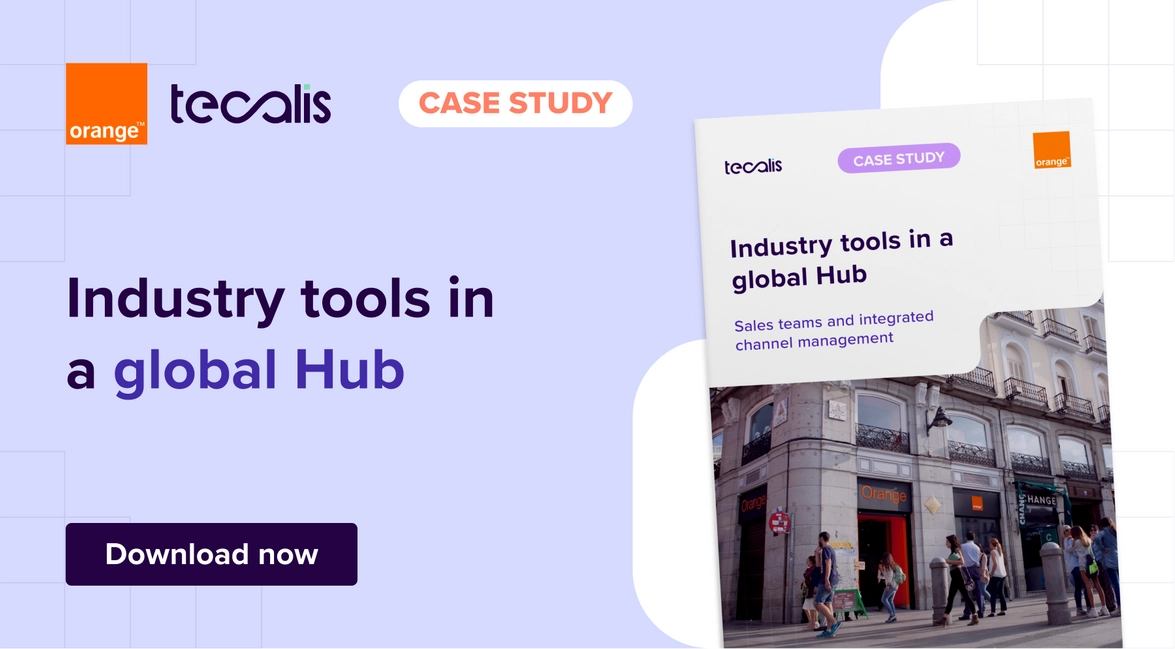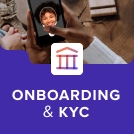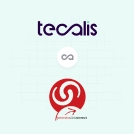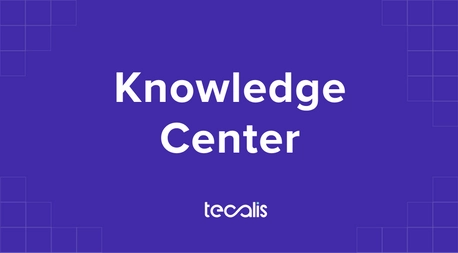Index
Get the latest news right in your inbox
Agent portals are essential to be able to create a wide sales network that has the effective capacity to activate new business. Providing your sales agents with a platform where they can work in a comfortable, orderly and secure way is a competitive advantage in an increasingly competitive market.
Next we will look at what a suitable agent portal looks like, what current options are available and define a roadmap to design it according to the needs of our business and the demands of the market.
What is an agent portal or sales portal
An agent portal is a digital workspace where professionals who are in direct contact with the market find the necessary tools to make new sales and resolve issues related to any interaction with the customer.
Many brands and businesses have managed to position themselves in the market thanks to agent portals, which boost the work of employees and collaborators, both in direct and indirect channels. Both prospecting and after-sales service can be managed from these digital platforms.
Customer portals, on the other hand, represent the other side of the overall sales, marketing and service experience. While agent portals focus more on opportunities not yet opened, in order to make them happen, customer portals focus on after-sales and cross-sale service.
Within agent portals, you can expect to find basic tools such as organizers, calendars, product configurators and a dashboard to keep track of customers and their active, expired or pending products or services.
Far greater than a CRM
It is important to clarify that the best agent portals are not a CRM even though they have many of the same functionalities. CRMs are focused solely on managing customer information and automating sales contacts through different channels (email, telephone) for effective lead tracking.
On the other hand, agent portals go much further by adding tools integrated with the business operations that allow for more relevant transactions and procedures, resulting in more capacity for agents to act in the face of everything they can solve for customers.

Customer Hub
Designing an agent portal based on Customer Hub allows businesses to unify the best of both worlds and present themselves to the market with a compelling proposition that delivers real results. This platform is presented as a robust business management tool that fully encompasses all the operational needs of a business' channels, brands and products.
In as little as 45 days (or less, depending on the project), you can have a revamped agent portal that is fully connected to your current systems. Here are the key steps in defining a Customer Hub project that will result in an agent portal that activates your marketplace:
1. Focus on use cases
The first step is to define what we currently have. What use cases are relevant among the commercial agents working the segments and regions to be activated. We will analyze what tools they are currently using and the possible margin for improvement in the processes and operations we already know.
Once defined and analyzed, we will be able to propose new strategies to implement in the agent portal. From the overall experience of the agent when using it to the technical and operational errors that the current tools present when executing specific tasks.
Once analyzed with a Customer Hub expert, we will begin to explore the functionalities of the agent portal and its connection at a technical level with the systems that activate the products and services of the business, databases, etc.

2. Choose tools that make it happen
To design an effective agent portal, it must integrate as standard technologies that allow these use cases to be carried out in an agile, simple and secure way. A portal where you can simply enter and query information is impractical and will not be able to solve relevant use cases.
Among all the tools integrated in the agent portals, the following stand out:
- Electronic signature, for the contracting of products and services in accordance with current regulations.
- Electronic notifications, to trace actions within the framework of pre-, during and post-sales customer communications.
- Identity verification and automated document collection, a must for industries such as insurance, banking and telecommunications.
- RPA, to automate calls between systems or soft bots that perform tasks for sales reps.
- Customer Due Diligence processes, especially when commercial agents must activate B2B business.
Electronic signature and KYC identity verification are combined in customer product activation flows, allowing sales agents to grant instant sign-ups at the point of sale with total security and in compliance with the most demanding regulations in each market.
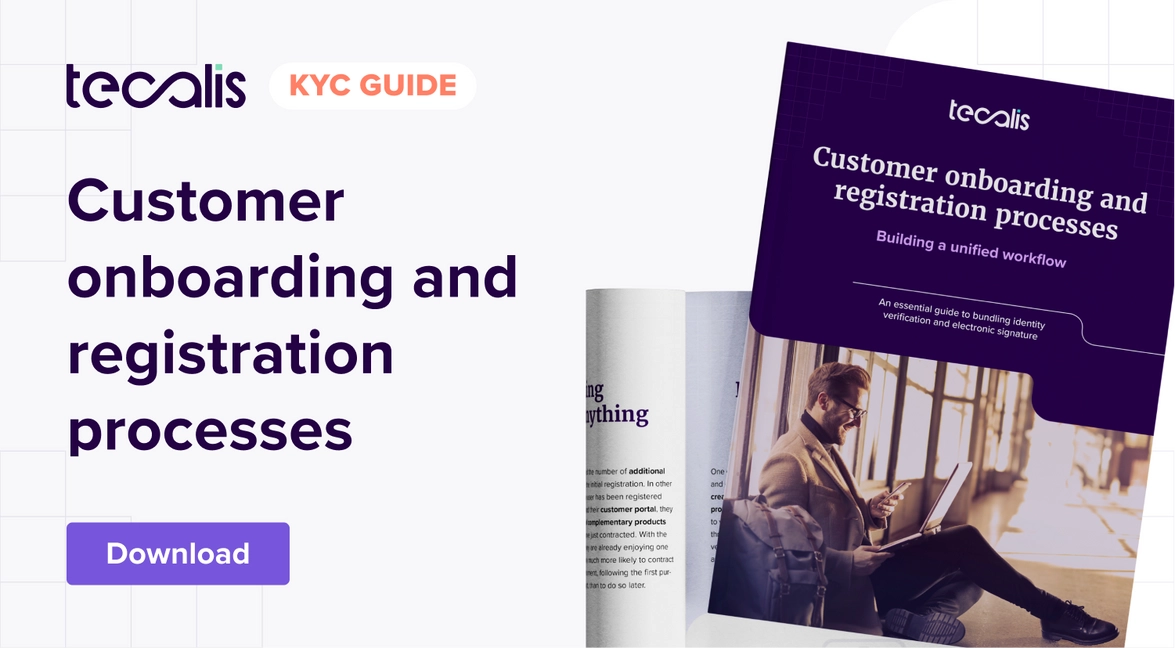
3. Real-time tracking, take relevant decisions on the go
The agent portal is available to partners and sales people but when built with Customer Hub, a business management center (administration portal) is activated for use from the business.
Area, sales or marketing managers also use Customer Hub to create sales strategies and activate new agents in minutes. Both the agent portal and the business management platform are really the same ecosystem. They work in a coordinated way and allow a comprehensive connection with different options and functionalities.
It is the most relevant commercial strategy tool, being able to create sales trees by market segment and establish objectives for commercial agents, among many other functions. They can observe in real time the evolution of each agent and their customers and prospects, approve merchandising or make visits to points of sale.
4. Plan a sales strategy
Signing up new sales agents in minutes is possible thanks to Customer Hub. This is one of the main keys to expanding the sales network quickly and securely. Thanks to its control systems and the total integration of the systems, providing credentials and access to the agent portal is very simple.
In addition, from this same platform, marketing surveys can be launched to gather information, train agents in the new strategy and products or manage campaigns to reach the market with the desired differential value proposition.
In case of branches and points of sale, real-time data can be visualized with value-adding graphs. By map connected to Google Maps, agents can be geolocated and status can be checked. With respect to points of sale, it is possible to create and consult order releases related to stock for both product in the case of physical product sales and back office material needed by sales agents.
5. Go beyond, innovate by enabling new opportunities.
When you have an agent portal, it is the perfect opportunity to innovate and diversify. Many businesses have seen a perfect opportunity when creating their agent portals to attack new niches and enable use cases that were not possible for them before, boosting sales of the already established and on the other hand creating new processes that have completely transformed the business, scaling it.
Agent portals such as Customer Hub allow ad-hoc customization and the creation of specific solutions for each business, approaching the development of its implementation from a transformation project perspective. However, this development is approached in an agile and fast way, since 80% of the system is already built in the absence of the company that wishes to create its new agent portal specifying these needs and making the transformation analysis of the commercial function together with Customer Hub experts.


Agent portal models tailored to your industry
Agent portals have proven to be essential catalysts for efficiency and performance in a variety of industries. Their ability to provide professionals with a comprehensive platform for transacting, resolving issues and managing customer interactions has led to their widespread adoption.
The key to their successful implementation and use lies in clearly identifying market opportunities for agents and giving them the necessary tools to carry out all operations autonomously and securely. In this context, we will explore how these portals adapt and benefit specific sectors, highlighting their particular functions and use cases.
Insurance
In the insurance industry, agent portals present themselves as advanced quotation tools. Known as search engines, comparators, product configurators or quoters, these web-based tools allow agents to efficiently compare prices and plans. Not only do they simplify the search for the best deals, but they also provide detailed information on coverages, premiums, deductibles and installment payment options.
The agent portals are used both by the direct employees of the insurance companies and by all employees of the major brokerages. They can also be made available to individual insurance agents with only one web access, which is easy to use and does not require extensive training.
They allow instant policy activation thanks to digital onboarding with automated risk scoring through PSD2/3 (Open banking) bank scrapping. This allows insurance to be marketed in locations such as shopping malls or any niche segment.
Utilities: energy marketing and supply
In the utilities field, agent portals play a crucial role in optimizing service and supply management. They enable commercial agents to access integrated tools that simplify day-to-day operations, such as energy trading.
From real-time monitoring to detailed consumption reporting, these portals provide a comprehensive platform to address the unique demands of the utility industry. Agents, through these specialized portals, can improve operational efficiency and deliver customized solutions to customers in the energy and utilities sector.
Both for agents working in call centers and for those who visit customers, the electronic signature is a great ally, being able to send electricity, water or gas contracts immediately to customers for signature from their mobile device.
Banking and financial services
In the banking and financial services industry, agent portals are becoming essential tools to enhance the customer experience. These portals go beyond traditional CRM functionalities, integrating specific tools to perform financial transactions, manage mortgage loans and facilitate customer due diligence (KYC/AML forms).
From electronic signatures to process automation, agents can offer services beyond information management, providing complete financial solutions in a secure and efficient manner.
Similar to the insurance sector, we find solutions in banking agent portals such as image and document recognition and validation using KYB / advanced OCR, for example to analyze true images of a vehicle or a property for appraisals or expert opinions and the collection, validation, processing and storage of documentation such as pay slips or tax forms.
Telecommunications
In telecommunications companies, agent portals play a key role, as it is a highly competitive industry where new players are increasingly breaking into the market and turning the market upside down.
Acting as integrated OSS/BSS tools to manage industry-specific processes such as service activation, technical problem resolution and contract administration, agents become a complete global assistant to any need a customer or prospect may have.
By using technologies such as electronic signature and identity verification together, agents can perform critical tasks such as SIM activation without delay in an efficient manner, ensuring fast and personalized customer service without the traditional waits where telco customers were left for hours or even days without a line. In addition, it solves high-risk use cases such as SIM Swapping, for which many players have received sanctions from regulators for not complying with security regulations.
